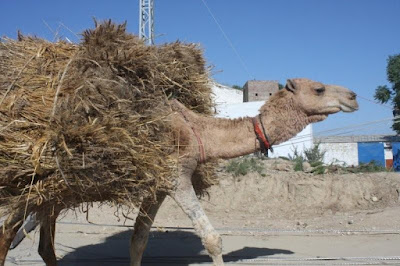Then there's livestock. Livestock are animals such as cattle, swine and sheep, that have been raised in an agricultural setting in order to produce meat, eggs, milk and so on.
So are you up on your animals? Some politicians even use the names of animals to describe - to insult - other politicians. Today's economic and political vocabulary includes the names of many animals to describe the mood of the country and the economy, not to insult individuals. Bulls and bears are frequently refereed to with expressions such as "bullish" and "bearish."
Today's headline:
What Could Hold Back a Democratic Wave? Economy, Confidence, Independence
This article says, "With two weeks until the election, Republican leaders and President Trump are increasingly bullish about Republican voters and moderate independents rallying behind the party’s candidates rather than taking a chance on a Democratic challenger or a Democratic-controlled House of Representatives.
Now think of a bull. Does this adjective, bullish, mean highly optimistic or highly pessimistic?
Here's another example for you sports fans - or football fans:
Why Bruce Arians is so bullish on the Jets’ future
Does Bruce expect the Jets to have a winning season or a losing one?

